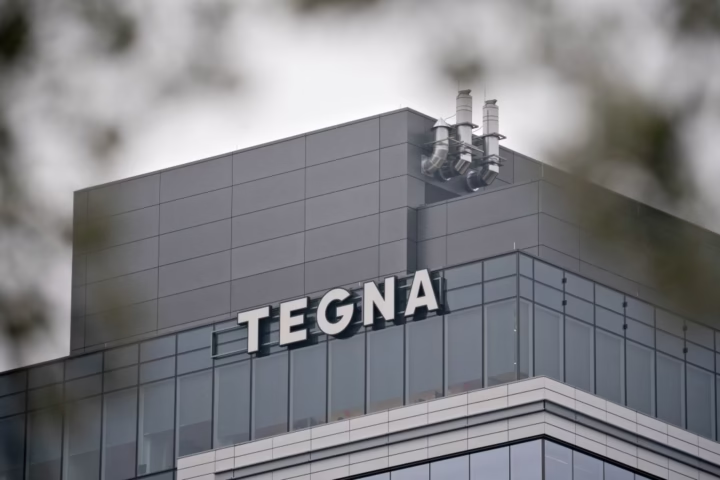In a landmark and deeply polarizing move, the Federal Communications Commission (FCC) on Thursday approved the long-anticipated $8 billion merger between entertainment giant Paramount Global and Skydance Media, a deal that will reshape the American media landscape and has already sparked concerns over press freedom, political influence, and the future of legacy broadcasting.
The merger, first proposed more than a year ago, brings together some of the most recognizable names in U.S. media — including the CBS television network, Paramount Pictures, and Nickelodeon — under the control of Skydance, the media company owned by David Ellison, son of Oracle billionaire Larry Ellison.
In a sharply worded statement, FCC Chairman Brendan Carr, a Republican, praised the merger and emphasized what he called the urgent need for reform in legacy media. “Americans no longer trust the legacy national news media to report fully, accurately, and fairly,” Carr wrote. “It is time for a change. That is why I welcome Skydance’s commitment to make significant changes at the once-storied CBS broadcast network.”
Carr revealed that Skydance made formal commitments to foster programming that reflects a wider range of political and ideological viewpoints. The company has also agreed to appoint an impartial third-party evaluator to handle complaints of bias in coverage — reporting directly to the president of the newly formed media conglomerate.
In a move drawing both praise and criticism, Carr highlighted that Skydance has no Diversity, Equity, and Inclusion (DEI) programs and has agreed not to implement any such initiatives in the new company. Critics have pointed out that this could signal a rollback of progress made in media diversity and representation.
Redstone Exits as Control Shifts
The merger also marks the end of an era for Paramount chair Shari Redstone, who will step down from the company’s board. Her family firm, National Amusements, is selling its controlling stake to Skydance, relinquishing decades-long influence over the media empire originally founded by her father, the late Sumner Redstone.
Dissent and Legal Clouds
The FCC’s 2-1 approval was not without resistance. Democratic Commissioner Anna Gomez issued a fierce dissent, expressing concern over what she described as political pressure and improper influence surrounding the decision.
“I am troubled by Paramount’s recent payout to settle a lawsuit filed by President Donald Trump against CBS’s ‘60 Minutes,’” Gomez wrote. “The Paramount payout and this reckless approval have emboldened those who believe the government can — and should — abuse its power to extract financial and ideological concessions.”
Gomez was referring to Paramount’s $16 million settlement with Trump, who had sued over the editing of a “60 Minutes” interview featuring former Vice President Kamala Harris. The FCC vote came just weeks after the payout and shortly after CBS abruptly canceled “The Late Show with Stephen Colbert,” one of its most-watched and outspoken late-night programs.
Colbert, who had criticized the merger and described the $16 million payment as a “big fat bribe” in a recent monologue, became a central figure in the growing controversy. Although CBS executives claimed the show’s cancellation was “purely a financial decision,” its timing — just days after Colbert’s on-air comments — has raised serious questions.
Hollywood and Political Fallout
The backlash has been swift. The Writers Guild of America (WGA) issued a formal statement condemning the cancellation and urged New York State Attorney General Letitia James to investigate the merger alongside ongoing inquiries in California.
“Cancelations are part of the business,” the WGA wrote. “But a corporation terminating a show in bad faith due to explicit or implicit political pressure is dangerous and unacceptable in a democratic society.”
Democratic Senators Elizabeth Warren (Mass.) and Adam Schiff (Calif.) also voiced alarm. In an op-ed for Variety, Warren raised concerns about possible collusion between CBS and the Trump administration.
“Was it a coincidence that CBS canceled Colbert just three days after he spoke out?” Warren asked. “Are we sure that this wasn’t part of a wink-wink deal between the president and a giant corporation that needed something from his administration?”
What’s Next for U.S. Media?
As the Paramount-Skydance merger clears its final regulatory hurdle, attention now shifts to how the combined company will reshape its programming, corporate policies, and newsroom culture. Observers say the implications could reverberate far beyond Hollywood, affecting political discourse, journalistic independence, and public trust in media for years to come.
David Ellison, who will lead the new company, has not yet publicly commented on the backlash but is expected to announce his executive leadership team and strategic vision in the coming weeks.
In the meantime, press freedom advocates, political leaders, and industry watchdogs remain on high alert — watching closely to see if the merger ushers in a new era of media transformation or becomes a cautionary tale of power, politics, and control.








